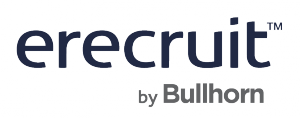In our previous post on generational diversity we identified the key differences between younger and older professionals. “Traditionalists,” those born before 1946, most likely experienced World War II rationing, and baby boomers, those who were born between 1946 and 1964, often have a differing opinion on workplace etiquette compared to the younger groups. The younger generations include generation Yers who were born between 1965 and 1985, and Millennials, those born after 1985.
However, the issue is more complex than just throwing out some rudimentary reasons why one generation may disapprove of the other. The continuity of workplace equilibrium is important for the strength of businesses as a whole. Recruiting software – which can help to reduce subjective decision-making that can get you into trouble with the EEOC — can help you create the right balance between the generations because there is not one inherently better generation in comparison to another – just differing viewpoints and work practices. It is up to us as staffing and recruiting professionals to recognize the strengths and weaknesses of all generations when providing candidates for hire to our clients (and that’s a big responsibility!)
Each generation has a different expectation for their careers and personal lives; so by measuring aptitudes accurately, we’re better able to fill positions and create a cohesive team in a workplace. As a result, each one can offer valuable experiences — it’s just about trying to get the right balance, like a seesaw.
“It’s easy to group employees by generational differences, but we all have different personalities, and different competency levels,” Stephanie Drake, executive director of the American Society for Healthcare Human Resources, told Hospitals and Health Networks News. “So it’s important to help those employees work with each other, learn from each other, and be able to leverage each other’s innate skills.”
While generational conflict may break out, it’s more likely to happen because of simple misinterpretations. For example, Millennials’ comfort and lack of rigidity when interacting with upper management may come across as disrespectful to a baby boomer. However, in most cases the respect is there, it just doesn’t equate to a fear of questioning. Millennials are very final product driven and the quicker the better. So, instead of standing attention and waiting until they are addressed, Millennials are more likely to go right up to a manager and start questioning or discussing their ideas.
As with many things, communication between the different age groups is paramount to the continued success of the group. According to some testimonials, setting up a system of understanding and age diversity training may be the best method of integrating the various generations within a single department or office.
“One of the things that we encourage is to understand that taking the time on the front end as a supervisor can certainly benefit you and the employees because you’re helping them to gain confidence, to feel comfortable, to be independent and make decisions,” Lauren Hill, director for diversity and staff development at Beaumont Michigan Hospitals, told the source.
Often, traditionalists or baby boomers feel that generation Y or Millennials are not focused or paying the proper attention to something at a given moment. However, it is that same scattered approach that may allow these younger generations to complete a variety of tasks at the same time.
“[Generation Yers] may still be as productive as the boomers – it’s just how they do their work that’s different. They’re very savvy at the computer, the phone, GPS, tablets. They know how to leverage technology to increase productivity. As long as they have access to that technology, they can be very productive,” Christine Ricci, a healthcare human resource professional, told the source.
Balance the strengths and weakness of both generations to better create a cohesive workplace that thrives in all scenarios.
 The Autonomy Intelligent Data Operating Layer (IDOL) understands the meaning of information in any format, such as text, video, audio, or social media data. The ability to recognise patterns, concepts and ideas in the so-called “human information”, or unstructured data, is expected to provide a critical advantage in recruitment, where resumes are not consistently formatted and use a range of different phrasing or compressed language to convey the same information.
The Autonomy Intelligent Data Operating Layer (IDOL) understands the meaning of information in any format, such as text, video, audio, or social media data. The ability to recognise patterns, concepts and ideas in the so-called “human information”, or unstructured data, is expected to provide a critical advantage in recruitment, where resumes are not consistently formatted and use a range of different phrasing or compressed language to convey the same information.
